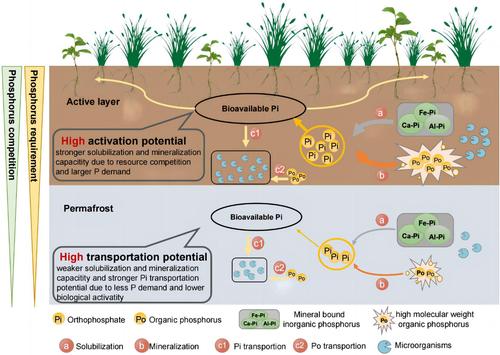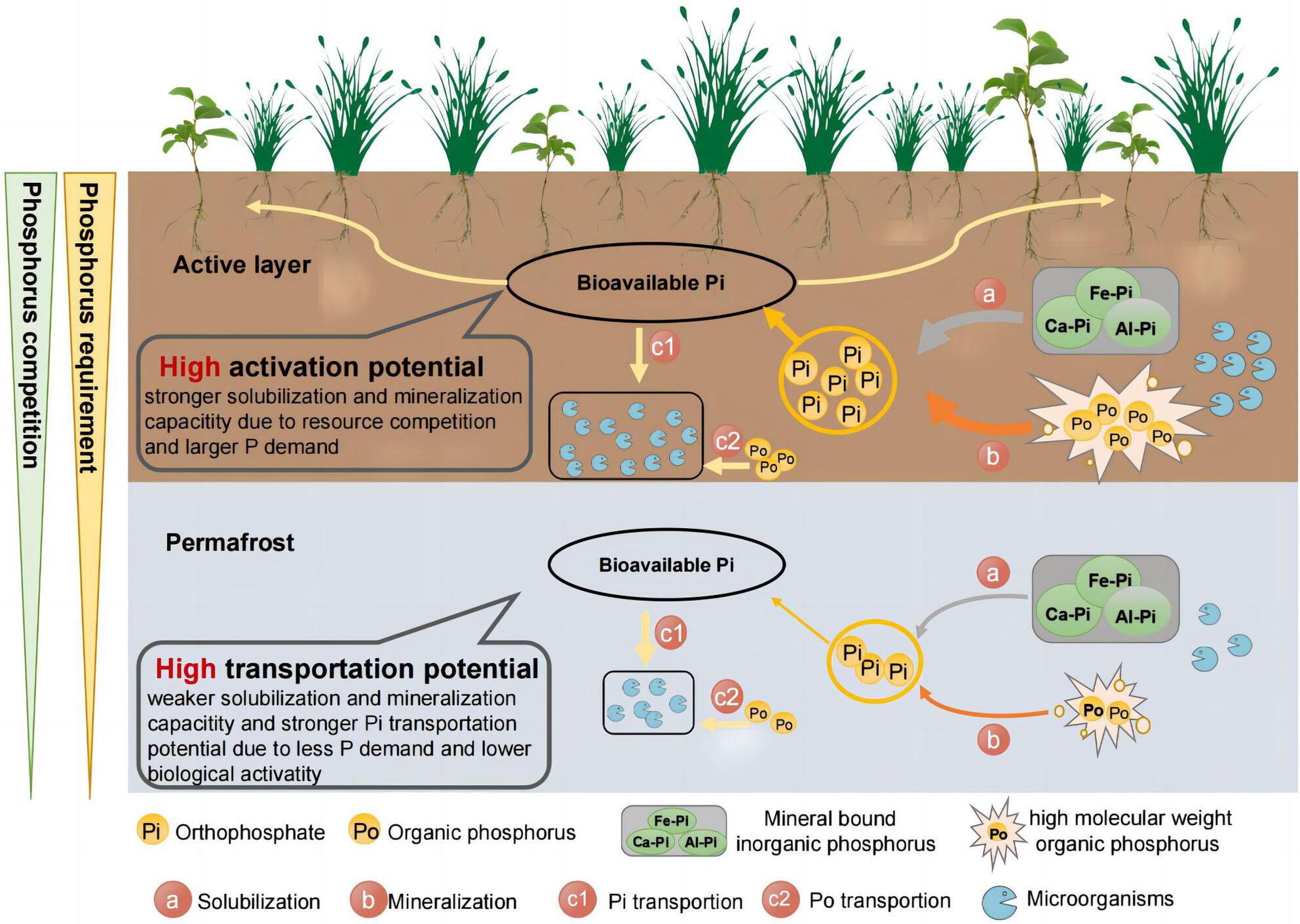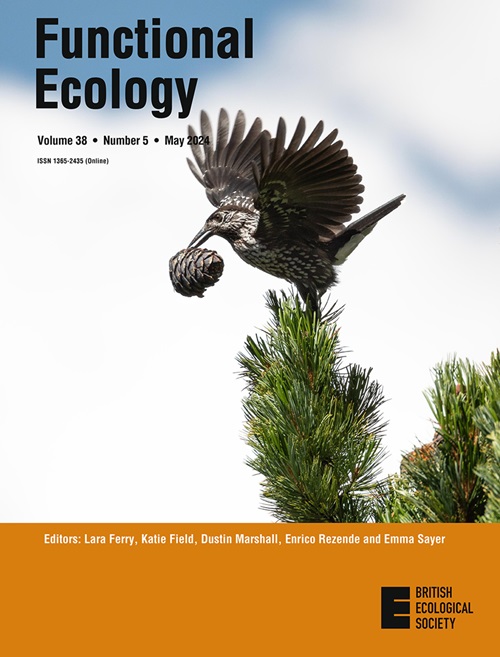Divergent microbial phosphorous acquisition strategies between active layer and permafrost deposits on the Tibetan Plateau
IF 4.6
1区 环境科学与生态学
Q1 ECOLOGY
引用次数: 0
Abstract
Read the free Plain Language Summary for this article on the Journal blog.


青藏高原活动层和永久冻土沉积之间不同的微生物磷获取策略
磷(P)对植物和微生物的生长至关重要,因此会影响永久冻土生态系统中的碳(C)循环。然而,人们对永冻土环境中土壤磷的可用性及其生物获取策略知之甚少。基于约 1000 千米横断面的大规模调查,结合枪式元基因组学,我们首次尝试探索了西藏高寒冻土区土壤微生物获取 P 的策略。我们的研究结果表明,与无机碳溶解、有机碳矿化和运输相关的微生物功能基因广泛存在,反映了冻土区微生物碳获取策略的多样性。此外,在活动层中检测到与溶解和矿化相关的基因丰度更高,携带这些基因的元基因组(MAGs)比例也更高,而在永久冻土沉积层中观察到低亲和性转运体基因(pit)丰度更高,携带pit基因的元基因组比例也更高,这说明活动层中的P活化潜力更大,而永久冻土沉积层中的P转运潜力更大。我们的研究结果突显了多种与钾有关的获取策略,应同时考虑它们在不同土层中的差异,以改进永冻土生态系统生物地球化学循环对气候变化响应的模型预测。在期刊博客上免费阅读本文的通俗摘要。
本文章由计算机程序翻译,如有差异,请以英文原文为准。
求助全文
约1分钟内获得全文
求助全文
来源期刊

Functional Ecology
环境科学-生态学
CiteScore
9.00
自引率
1.90%
发文量
243
审稿时长
4 months
期刊介绍:
Functional Ecology publishes high-impact papers that enable a mechanistic understanding of ecological pattern and process from the organismic to the ecosystem scale. Because of the multifaceted nature of this challenge, papers can be based on a wide range of approaches. Thus, manuscripts may vary from physiological, genetics, life-history, and behavioural perspectives for organismal studies to community and biogeochemical studies when the goal is to understand ecosystem and larger scale ecological phenomena. We believe that the diverse nature of our journal is a strength, not a weakness, and we are open-minded about the variety of data, research approaches and types of studies that we publish. Certain key areas will continue to be emphasized: studies that integrate genomics with ecology, studies that examine how key aspects of physiology (e.g., stress) impact the ecology of animals and plants, or vice versa, and how evolution shapes interactions among function and ecological traits. Ecology has increasingly moved towards the realization that organismal traits and activities are vital for understanding community dynamics and ecosystem processes, particularly in response to the rapid global changes occurring in earth’s environment, and Functional Ecology aims to publish such integrative papers.
 求助内容:
求助内容: 应助结果提醒方式:
应助结果提醒方式:


